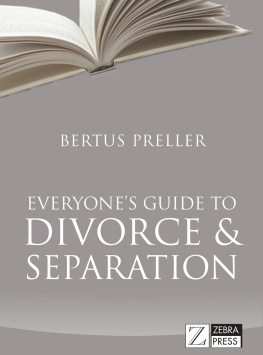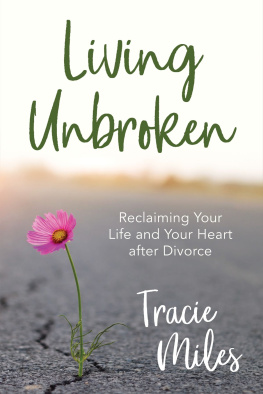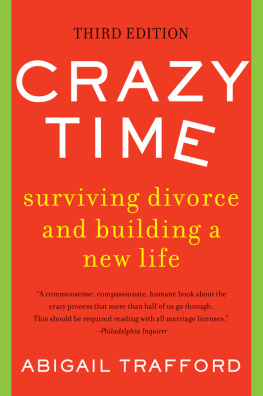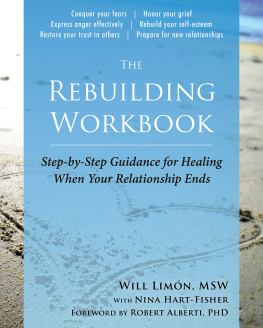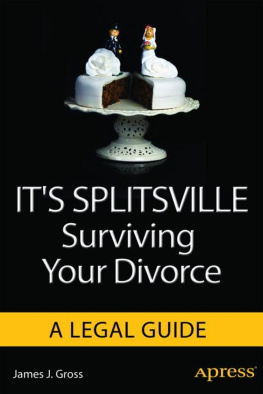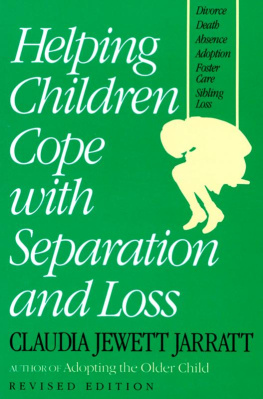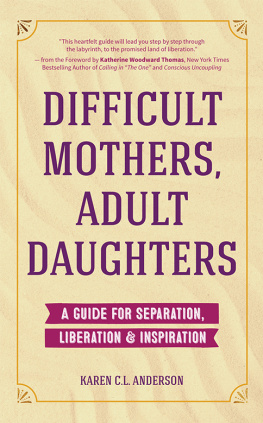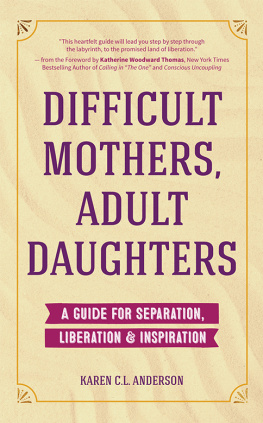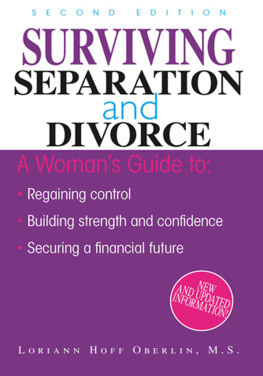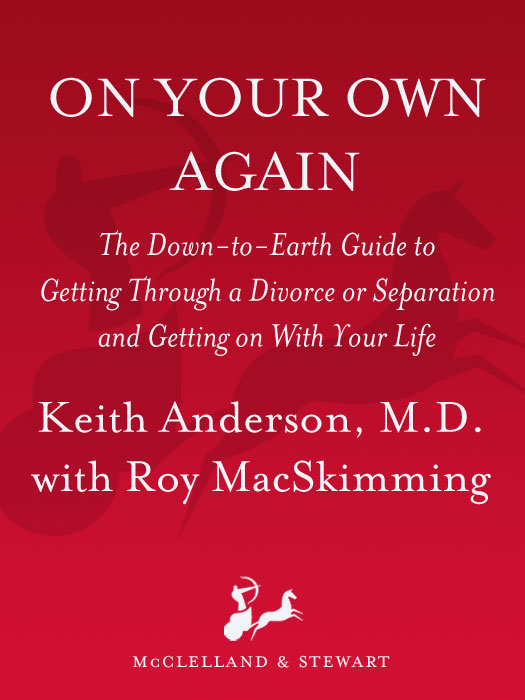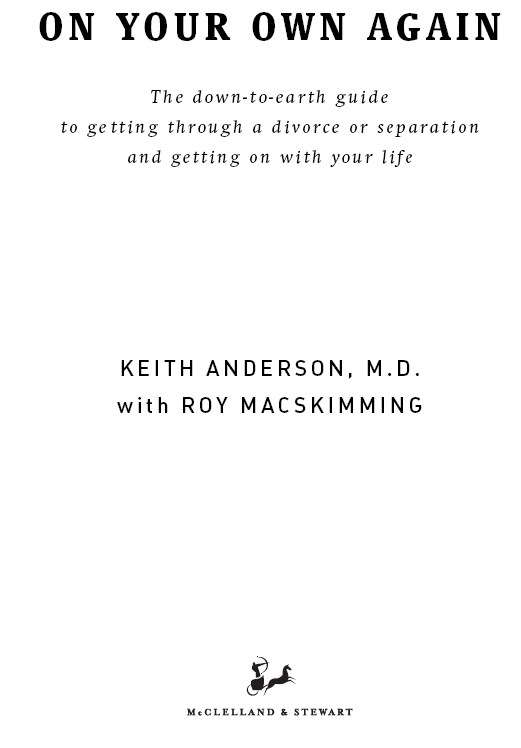CONTENTS
This book is dedicated to Sarah and Mark:
We knowit happened to us.
To the Reader
I N OUR FIRST SESSION together, I always ask new patients one simple question: Why are they here?
Theyve gone to a certain amount of trouble to see me, I remind themto obtain a referral, to make an appointment, to wait several weeks and then show up in my office at the appointed hour. Why are they doing this? What do they want?
The answers I receive are many and varied: My best friend sent me. Im impossible to live with. My husband left me and I cant cope. Im here to save my marriage.
These answers are honest enough, but they dont reveal the deeper reason why most men and women in pain come to see meor any other therapist. Or why they pick up a book such as this one.
Naturally, people are looking for relief from the pain and confusion theyre suffering. But theres an even more fundamental motive for seeking professional help: a profound need to learn how to be in the worldhow to know, and become, your own unique self.
In therapy, the patient makes a commitment to work on behalf of him-or herself. Similarly with you, the reader of this book. Youre someone who knows about pain and confusion. You dont need to be told that the only thing worse than separation is a bad relationship. But youre determined that pain and confusion arent going to be your permanent lot in life.
My focus, therefore, isnt on saving or losing a marriage or relationship, as important as that may be, or may have been in the past. There is something even more important: the vital and enduring issue of learning to be yourselfin or out of a relationship.
Thats what On Your Own Again is really all about. By opening this book and starting to read, youve made a statement about yourself. Youre asking the crucial question that will let you deal with the rest of your life. Youre saying, My relationship is coming (or has come) apart; Im desperately unhappy; my partner is unhappy; the kids (if any) are unhappy; everybodys unhappy. And youre asking, What am I going to do about it?
The significance of posing this question is that youre preparing for change. Youre signaling your readiness to take steps on your own behalf, to begin anew, and thus to embark on a process of change that will lead you, after many twists and turns, toward personal growth and happiness.
Amazingly enough, the goals of personal growth and happiness can be achieved whether your relationship continues or not. This is often difficult to realize. Youve lived so much of your adult life as one half of a couple that your personal identity seems swallowed upseemingly merged with your partners identity or with the identity of the relationship itselfand as a result, you wonder how much of you survives.
Later on, well look at reasons why this merging of identities takes place. And well look at the ways you can be yourself once again, whether in or out of a relationship. For the moment, consider, if you will, a radical notion: When youre making the necessary changes in your life, your partner is irrelevant. Youre doing it for yourself. Because no matter what happens to your marital or partnership status, youve got to be yourselfa person in your own right.
In the broadest sense, then, the answer to What am I going to do about it? is: Im going to be me.
On Your Own Again is divided into four parts. This structure corresponds to the four psychological stages of surviving separation and divorce. While its true that every life is unique, and everyones suffering special, there does exist a typical and predictable pattern in the long process of renewal after separation. In my professional experience, the great majority of men and women pass through these four developmental stages.
Even more remarkable, the four stages typically follow a sequence that stretches over approximately three years. It can be extremely helpful to know that your personal path to recovery and renewal is marked by guideposts along the way.
These stages arent as clear-cut and identifiable as the more familiar milestones of separationsuch as your first meeting with the lawyer, the day you sign the separation agreement, the final decree from the court, the first Thanksgiving or Christmas or anniversary after the breakup. Such marker events can evoke strong emotions, bringing back feelings of distress or sadness over the breakup.
No, the stages Im talking about vary in length for different people, and may even overlap to some extent. They arent so distinct that you can say, Im finishing Stage One today and starting Stage Two tomorrow. Each individual passes through them at his or her own pace. But roughly speaking, the stages evolve one out of the other, according to the following pattern:
Stage One: Hurtingthe first three months or so.
Stage Two: Exploringthe balance of Year One.
Stage Three: Becoming YouYear Two.
Stage Four: Getting ComfortableYear Three.
Dont worry if your experience doesnt fit closely with this timetable. Different individuals will move through these stages at their own rates. But the stages give you a framework to hang your experience onand to help you know youre moving in the right direction as you learn to live successfully, on your own again.
Incidentally, I never advise people to divorce. Its such a major decision that everyone must make it for him-or herself. But by the same token, I never tell people to marry, either.
If youre contemplating separation, this book wont tell you which way to jump. It will, however, explore the urgent problems that newly separated or newly divorced people must typically deal with. And by clarifying those problems, it will enable you to see whats at stake, helping you to make up your mind about your own relationship.
If, on the other hand, youre already separated or divorced, this book will serve as a survival guide through unfamiliar and seemingly hostile territory. It will help you to understand and work through the pain youre feeling. And it will put you, I hope, on familiar and even comfortable terms with the often unpredictable, sometimes baffling, but potentially deeply rewarding experience of being on your own again.
Keith Anderson, M.D.
STAGE ONE
Hurting
T HE FIRST HUNDRED days are the toughest.
Its painful enough to live through the sad and angry times leading up to your separation. But during the first three months of being on your own, youre confronted by the sheer loneliness of this new stage in your life. Much of the time you feel shaken. Sometimes you feel overwhelmed by uncertainty and fear. The first three chapters of this book are designed to help get you through this difficult stage and on to the next.
For now, your priority is just surviving from day to day. Well be examining different ways to manage that. And well look at the parallels between a separation and a deathboth of which involve a need to grievealways keeping in mind that its a relationship, not a human being, that has died. Finally, well consider some of the typical pitfalls newly separated people encounter, and how to deal with them.
Reading these chapters may hurt a little, may touch on some raw spots in your feelings. But then, so much in your life hurts right now. Is this stage just as bad for everyone else? Absolutely. The main thing to remember is that it does come to an end.



